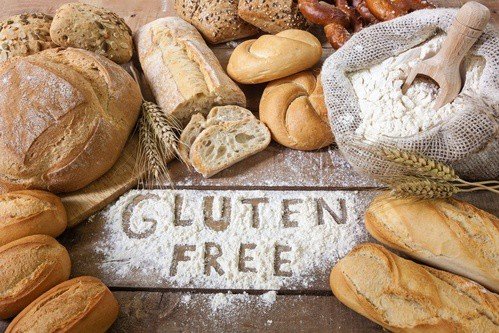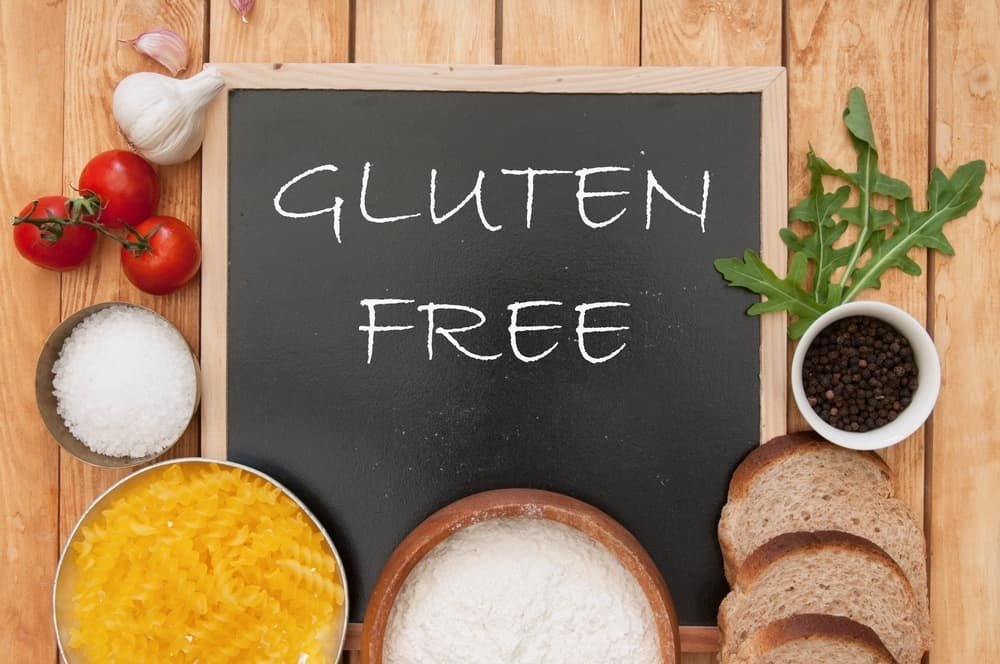
- Home
- gluten free foods
5 Tips for Going Gluten Free on a Budget

When you decide to improve your health by going gluten-free, you may feel a little sick as you see the prices for gluten-free products at the supermarket. While eliminating gluten may be a health necessity, it can put a strain on your wallet.
Read on to learn how you can go gluten-free and hang on to some of your hard-earned money.
1. Learn to Bake. The most expensive gluten-free items are those that are baked and mimic foods such as cookies, cakes, and breads. If you learn to bake you can save money by purchasing only the ingredients and doing the labor yourself.
You’ll also find that baking foods yourself is healthier than many of the processed options you’ll find that are gluten-free.
2. Buy in Bulk. When it comes to any purchase, it’s always less expensive to buy in bulk. You can buy many gluten-free items online or in a warehouse superstore and get a big discount on the unit cost.
One important thing to remember, though, is that you need to store these items properly so that they don’t go bad before you use them. For example, you may need to store some items in a freezer while others are okay at room temperature in an airtight container.
3. Stay Away from Processed Foods. There are many foods that are naturally gluten-free and are much less expensive than highly processed foods. For example, fruits, vegetables, and lean meats are always gluten-free. Rice is also an inexpensive grain that’s naturally free from gluten.
4. Clip Coupons and Watch Sales. When there are processed items that you just have to have, look for coupons to help give you a discount. The newspaper is a great source of coupons as are many online coupon sites. You can also check your weekly ads and stock up when your favorites are on sale.
5. Make a Meal Plan. For any type of diet, it’s always less expensive to plan meals ahead of time. This allows you to stick to your budget as well as use expensive items for more than one purpose in a given week.
When you stick to your meal plan you’re less likely to make last minute purchases of gluten-free convenience foods that can be expensive. It’s also good to include snack options in your meal plan to save money.
It’s possible to eat gluten-free without killing your grocery budget and still have plenty of foods you enjoy.
Gluten-Free Does Not Mean Grain-Free

Many people who are contemplating going on a gluten-free diet are concerned that they’ll no longer be able to have grains as part of their diet. While some people choose to go grain-free, it’s not necessary to do so if you’re avoiding gluten.
In fact, there are many grains that you can eat when you’re on a gluten-free diet. Read on to learn what you need to eliminate and which grains you can continue eating as you go gluten-free.
Grains That Need to Go
When you’re going gluten-free you’ll want to start by eliminating anything that contains wheat, barley, or rye. That sounds easy, but many things are made with these ingredients including breads, cakes, cookies, and beer.
Another thing you need to know is that you can find gluten in foods that aren’t primarily grains. For example, soy sauce is usually made with wheat and contains gluten. So when you’re working to eliminate gluten completely you need to read all labels.
Not all products that are gluten-free will be labeled as such. But look for the warning that a product contains wheat, rye, or barley as you make choices about what to put in your grocery cart.
Another grain called spelt is actually a species of wheat and does contain gluten. So you’ll need to make sure that you don’t accidentally purchase products containing spelt thinking that they’re safe.
Grains That Are Safe
There are many grains that you can enjoy while going on a gluten-free diet. For example, products made from corn and rice do not have gluten and are safe to eat. You may also enjoy foods that contain grains such as millet, quinoa, sorghum, and teff.
These are often referred to as ancient grains and can be found in many supermarkets and health food stores as well as online. Despite its name, you can also eat buckwheat. While the name suggests that it contains wheat, buckwheat is actually a totally different plant and doesn’t contain gluten.
Oats by themselves are also free from gluten. However, oats are often processed in factories that also process wheat. If you’re avoiding gluten, and especially if you have celiac, it’s critical that you purchase oats that are certified as gluten-free. These are guaranteed not to be processed alongside wheat where they can become contaminated.
In any case it’s always best to choose whole grain options when you decide to add grains to your diet. Just because grains are gluten-free doesn’t meant that they’re good for you in a highly processed form.
10 Reasons to Go Gluten-Free

If you’re considering going gluten-free, but you’re not yet convinced, read on to learn 10 reasons why giving up gluten could be good for you.
1. Celiac Disease. Celiac disease is an autoimmune disease related to a gluten allergy. For some people the symptoms are mild while for others they’re so severe that they can even be fatal. But many people have celiac disease and aren’t diagnosed with it. Giving up gluten can be a good way to determine if you have a problem with it.
2. Migraines. Many people with migraine headaches don’t know the actual cause. It turns out that migraines can be related to gluten sensitivity. The only way to know for sure is to eliminate gluten and then reintroduce it to see if it causes problems.
3. Weight Loss. If you’ve struggled to lose weight, even when you restrict your calories, it may be related to gluten. People who are sensitive to gluten often hang on to excess weight – especially belly fat. Eliminating gluten could help you to lose weight.
4. Your Brain on Gluten. Gluten has been shown in many studies to affect the brain. By eliminating gluten you may think more clearly and people who have autism or epilepsy may actually experience improvements by going gluten-free.
5. Carb Cravings. If you find that you’re always craving bread, pasta, and other wheat-based carbs it could actually be a gluten addiction. People who are sensitive to gluten often crave it.
6. Inflammation. If you have gluten sensitivity, eating it can lead to chronic inflammation in the body. Inflammation can lead to diabetes, cancers, and heart disease as well as weight gain and fatigue. Eliminating gluten can reverse this inflammation and restore good health.
7. Leaky Gut Syndrome. Gluten can be the culprit for causing leaky gut syndrome. This is a condition in which your intestines leak toxins back into your bloodstream and leads to inflammation and health problems.
8. Better Nutrition. When you give up foods containing wheat you’ll be eating fewer processed foods and will naturally gravitate toward more fruits, vegetables, and lean meats that are better for your body.
9. Less Gas. Many people who eat wheat also experience trouble digesting it. This can lead to uncomfortable cramping, bloating, and embarrassing gas.
10. Fertility. Many women who experience infertility are actually suffering from gluten sensitivity. By eliminating gluten some women who have previously experienced infertility and miscarriages are able to conceive naturally and deliver a healthy baby.